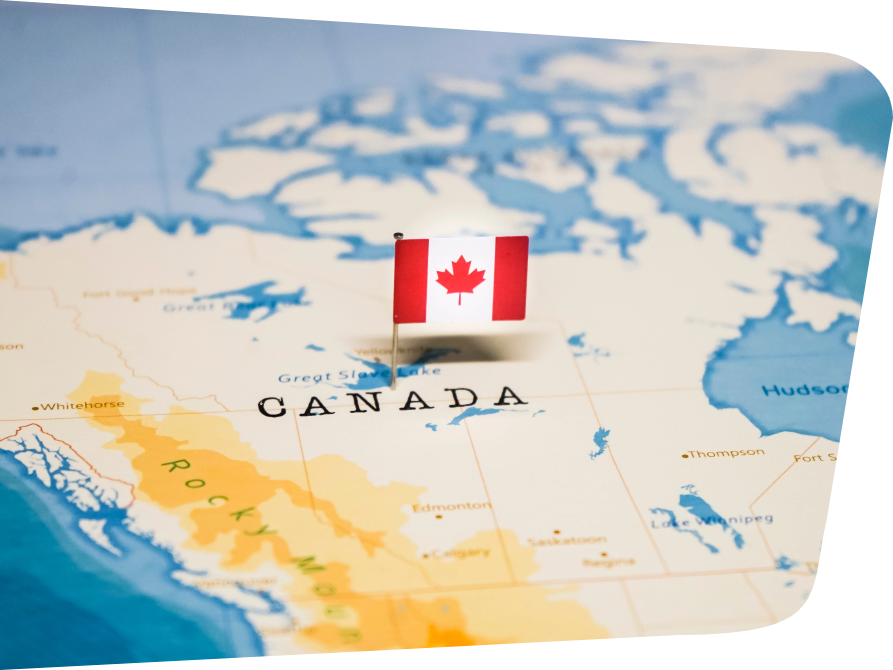Happy Living in Canada
The United Nations released its 2022 World Happiness Report and listed Canada among the top 20 happiest countries.
This is the 10th year that the UN Sustainable Development Solutions Network has surveyed people in around 150 countries worldwide to measure and compare their levels of happiness.
“Happiness” was measured using factors such as freedom to make life choices, GDP per capita, generosity, healthy life expectancy at birth, perception of corruption, and social support.
After examining the results of the global survey, the UN researchers ranked Canada as the 15th happiest country in the world for 2022.

According to the 2022 UN World Happiness Report, the top 20 happiest countries in the world are: #1 Finland, #2 Denmark, #3 Iceland, #4 Switzerland, #5 Netherlands, #6 Luxembourg, #7 Sweden, #8 Norway, #9 Israel, #10 New Zealand, #11 Austria, #12 Australia, #13 Ireland, #14 Germany, #15 CANADA, #16 United States, #17 United Kingdom, #18 Czech Republic, #19 Belgium and #20 France.
In a separate recent survey of approximately 2,500 adults living in Canada performed by the Gandalf Group and The Globe and Mail, it was discovered that a majority of Canadians (67 percent) reported being “very happy” and 68% of people living in Canada indicated they are “very satisfied” with their lives.
The national survey focused on the overall happiness of people living in Canada and how satisfied they are with certain aspects of their lives (e.g., family, financial, personal, social, work, etc.).
Canadian women and men are almost even in perceptions of happiness, with 66% of females and 69% of males indicating they are very happy.
People who are in a relationship and individuals with children had higher happiness levels than those who are not in a relationship and Canadians without children.
According to the survey, 72% of Canadians who are in a relationship are very happy, compared with 59% who are not in a relationship.
It should be noted that 62% of non-parents and 63% of parents with children under 18 years of age reported being very happy, however, parents with children over the age of 18 were the happiest of all (77 percent).
Employment was another factor that seemed to influence happiness levels.
For example, the survey discovered that 66% of the respondents who are working in Canada said they are very happy, compared with 54% of those who are not employed, but the happiest Canadian adults are those who are retired, with 78% reporting that they are very happy.
There is a saying that money can’t buy you happiness, however, the survey discovered that Canadians with higher incomes reported higher levels of happiness.
For example, 57% of survey respondents with yearly incomes below $50,000 said they were very happy, compared with 65% earning $50,000-$100,000, 71% of those making $100,000-$150,000, and 78% of Canadians with salaries above $150,000 per year.
Older Canadians reported higher levels of happiness than younger adults living in Canada.
For example, 78% of Canadians 65 years of age or above said they were very happy, compared with 62% of adults in the 18-34 age range.
For Canadians between the ages of 35 and 44, the survey found that 60% reported being very happy, while 61% of individuals in the 45-54 age range and 74% of adults 55-64 said they were very happy.
Where a person is living in Canada is also associated with their happiness level, according to the survey results.
For example, the percentage of Canadian adults indicating they are very happy was the highest in the province of Quebec (74 percent), compared with 69% in Ontario, 67% in Manitoba and Saskatchewan, 66% in Canada’s Atlantic provinces, 64% in Alberta, and 63% in British Columbia.
Canadian adults living in Quebec not only reported the highest happiness levels compared with other areas of the country, but also had higher levels of satisfaction with their physical health, amount of sleep they receive, leisure time, relationships, and quality and number of friendships.
Some of the theories offered by researchers as to why people living in Quebec tend to be happier and more satisfied than Canadians who live in other parts of the country include: stronger social support, relatively low cost of housing, and a sense of community among the predominantly French-speaking population of Quebec.
Although the percentages vary, this survey found that the majority of people who live in Canada report being very happy, regardless of the demographic, socioeconomic or other factors.
In sum, happiness comes from within each person, however, where someone lives and their quality of life can greatly influence perceptions of well-being.
Would you and your family like to live in Canada – one of the happiest countries in the world?

DISCLAIMER: This guide is not and shall not be considered as professional or expert advice.
